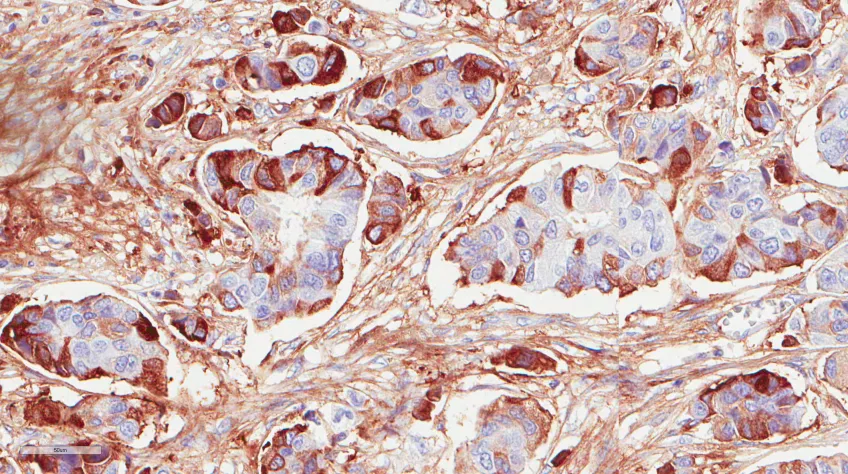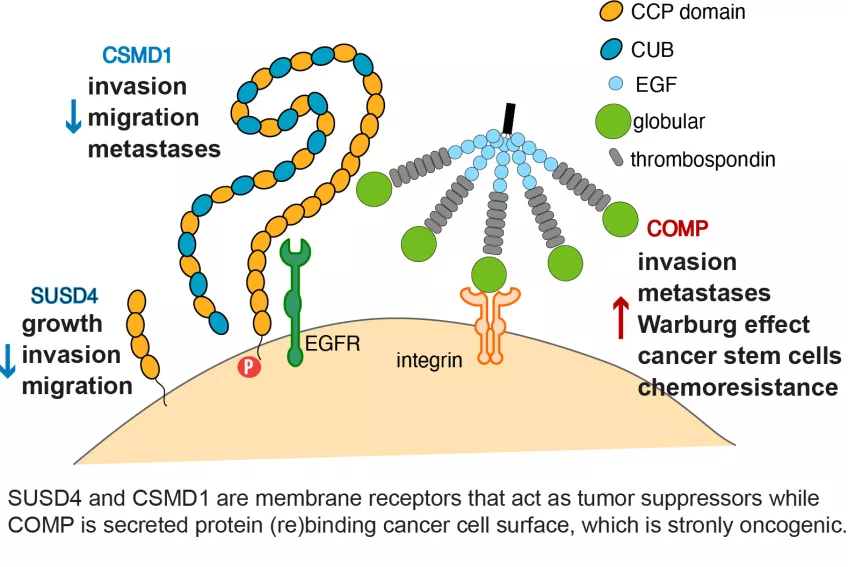Complement and cancer
Complement-dependent cytotoxicity is one of the mechanisms by which therapeutic monoclonal antibodies are toxic to cancer cells. Also, complement is currently undergoing re-appreciation of its role in the immune surveillance of tumors. The majority of human tumors are low immunogenic and complement may be involved in their recognition via direct “danger signal” elicited activation. This in turn attracts inflammatory cells that may be associated with malignant transformation but also with tumor regression. The experimental evidence is being accumulated to show opposing roles of complement in tumor control.
Therefore we investigate:
- function of several poorly characterized proteins expressed in tumor cells and which are structurally related to known complement inhibitors but also suggested to act as tumor suppressors. One of these is CSMD1, a large transmembrane protein deleted in number of tumors but also acting as classical complement inhibitor targeting complement convertases. Another is SUSD4, which we recently showed to be bind and inhibit C1 and which we found on T cells infiltrating various solid tumors. We study how these proteins are related to tumor development in breast, prostate and melanoma cancer models.
- how does a complement regulator and extracellular matrix protein COMP (cartilage oligomeric matrix protein) promote tumor growth and metastases in breast, ovarian and prostate cancer in which it is highly expressed and it if can be used as biomarker
- Importance of complement activation and individual variations in complement levels for therapeutic effect of clinically approved anti-CD20 mAbs used for treatment of B cell malignancies.



